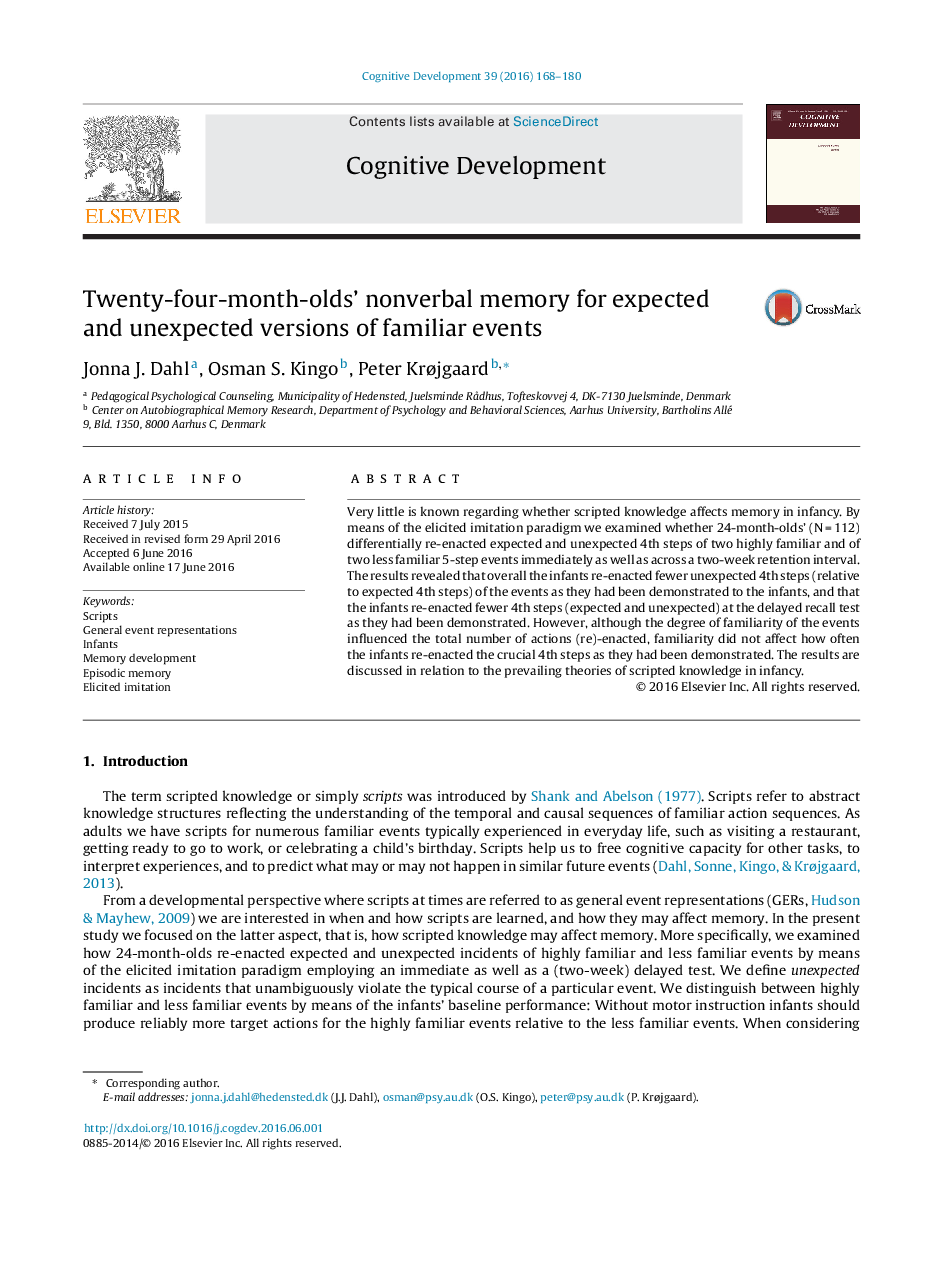| Article ID | Journal | Published Year | Pages | File Type |
|---|---|---|---|---|
| 7272459 | Cognitive Development | 2016 | 13 Pages |
Abstract
Very little is known regarding whether scripted knowledge affects memory in infancy. By means of the elicited imitation paradigm we examined whether 24-month-olds' (NÂ =Â 112) differentially re-enacted expected and unexpected 4th steps of two highly familiar and of two less familiar 5-step events immediately as well as across a two-week retention interval. The results revealed that overall the infants re-enacted fewer unexpected 4th steps (relative to expected 4th steps) of the events as they had been demonstrated to the infants, and that the infants re-enacted fewer 4th steps (expected and unexpected) at the delayed recall test as they had been demonstrated. However, although the degree of familiarity of the events influenced the total number of actions (re)-enacted, familiarity did not affect how often the infants re-enacted the crucial 4th steps as they had been demonstrated. The results are discussed in relation to the prevailing theories of scripted knowledge in infancy.
Related Topics
Social Sciences and Humanities
Psychology
Developmental and Educational Psychology
Authors
Jonna J. Dahl, Osman S. Kingo, Peter Krøjgaard,
